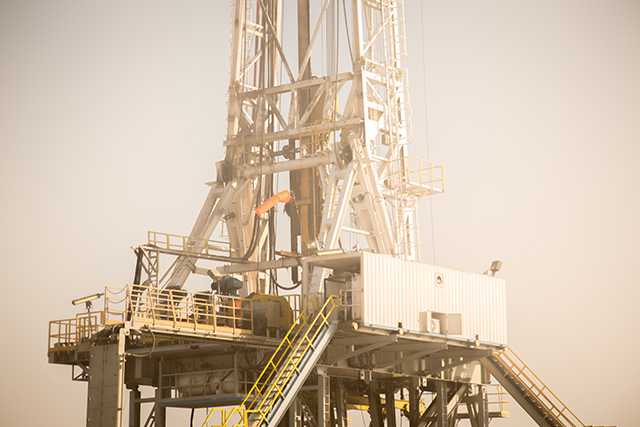
The effort to prevent fracking in Florida cleared a major hurdle on Monday as the state senate’s environmental conservation committee approved a bipartisan bill to ban fracking statewide by a 10-0 vote.
The bill would place a permanent ban on “advanced well stimulation techniques” for producing oil and gas, including fracking and acidizing. Fracking, or hydraulic fracturing, involves injecting large volumes of water, chemicals and sand at high pressure into oil and gas wells to break up underground rock formations and release raw fossil fuels. Acidizing is a similar technique that dissolves underground formations with corrosive acids.
The bill was introduced by State Sen. Dana Young, a Republican from Tampa who said in a statement that the legislation is a “priority” for protecting “drinking water and our one-of-a-kind natural resources.”
Along with several Republican cosponsors, Young appears to be taking a not-in-my-backyard-style departure from the GOP party line. Republicans on Capitol Hill and in statehouses across the country have long worked to dismantle environmental regulations and support the rapid expansion of fracking, which has stoked nationwide controversy over drinking water contamination, air pollution and the disposal of fracking wastewater.
Now, under the Trump administration, efforts to sweep away environmental protections and expand oil and gas production have gone into hyper drive, particularly on public land. However, the industry has hit a snag in Florida, where both Democrats and Republicans remain concerned about potential impacts that industrial oil and gas development could have on the Sunshine State’s rich natural resources and tourism-heavy economy.
To see more stories like this, visit “Planet or Profit?”
Trump’s Interior Department recently removed waters off the coast of Florida from a list of areas where the government wants to expand offshore drilling after a plea from Florida Gov. Rick Scott, a Republican who otherwise supports fossil fuels production.
“[Fracking] is a bipartisan issue, just like the opposition to offshore drilling, because Florida is really dependent on a tourism economy,” said Jorge Aguilar, the southern regional director of Food & Water Watch, a group that campaigns to ban fracking. He added that memories of the 2010 BP oil spill in the Gulf of Mexico are still fresh in many Floridians’ minds.
Fracking has yet to gain a foothold in Florida, where unique limestone geology holds large underground water reserves and feeds freshwater springs that attract tourists from around the world. Fracking would drain large amounts of fresh water from these reserves, and conservationists worry that the porous limestone puts aquifers at risk of being contaminated by fracking chemicals and waste fluids.
Floridians are also concerned with protecting sensitive ecosystems such as the Everglades from industrialization. In fact, 90 local city and county governments have passed measures restricting unconventional oil and gas production in their areas, according to Food & Water Watch. Lawmakers from both parties have taken notice.
“What we see in Florida is a real focus on protecting its water resources; the geology of the state is really porous,” Aguilar said. “There is a real fear by [both] conservatives and Democrats that the fracking industry — which is a new, unconventional type of drilling — could really contaminate water resources and use up millions of gallons of water.”
Aguilar said oil and gas operators are exploring drilling permits in the Florida panhandle and the southwestern part of the state despite local opposition. Industry lobbyists are also pushing back against the proposed ban in the legislature.
“You’re sending a message to the rest of the country that fracking is not good, and I think that’s the wrong message,” Florida Petroleum Council Associate Director Eric Hamilton told the Sun Sentinel, a south Florida newspaper, explaining that fracking can be done “safely” in Florida if large reserves of oil and gas are discovered in the future.
The Sun Sentinel reports that the bill to ban fracking in Florida faces a tough road in the legislature’s lower chamber, where Republican leaders prefer compromise legislation that would place a temporary moratorium on fracking while regulators study its potential impacts on the state’s unique environment.
However, anti-fracking activists remain hopeful that the ban will succeed. Aguilar said the ban would appeal to fiscal conservatives who may cringe at the idea of spending taxpayer dollars to fund studies on fracking, which is already unpopular among their constituents.
“What we have argued is that there are enough studies to show the inherent harms of fracking that we don’t need to spend any more taxpayer money to … make sure it’s not right for Florida,” Aguilar said.
Three states — Vermont, New York and Maryland — have banned fracking, while other states with large oil and gas reserves have embraced it as an economic boon, despite environmental concerns. A campaign to ban fracking is currently underway in Illinois, where at least one fossil fuel company has pursued high-volume fracking and wastewater injection permits, according to Food & Water Watch.
That company withdrew its permit applications in October in the face of tight regulations and environmentalist opposition. Now, activists in Illinois are asking state lawmakers to put tougher restrictions on fracking or ban it altogether.
Join us in defending the truth before it’s too late
The future of independent journalism is uncertain, and the consequences of losing it are too grave to ignore. To ensure Truthout remains safe, strong, and free, we need to raise $50,000 in the next 9 days. Every dollar raised goes directly toward the costs of producing news you can trust.
Please give what you can — because by supporting us with a tax-deductible donation, you’re not just preserving a source of news, you’re helping to safeguard what’s left of our democracy.